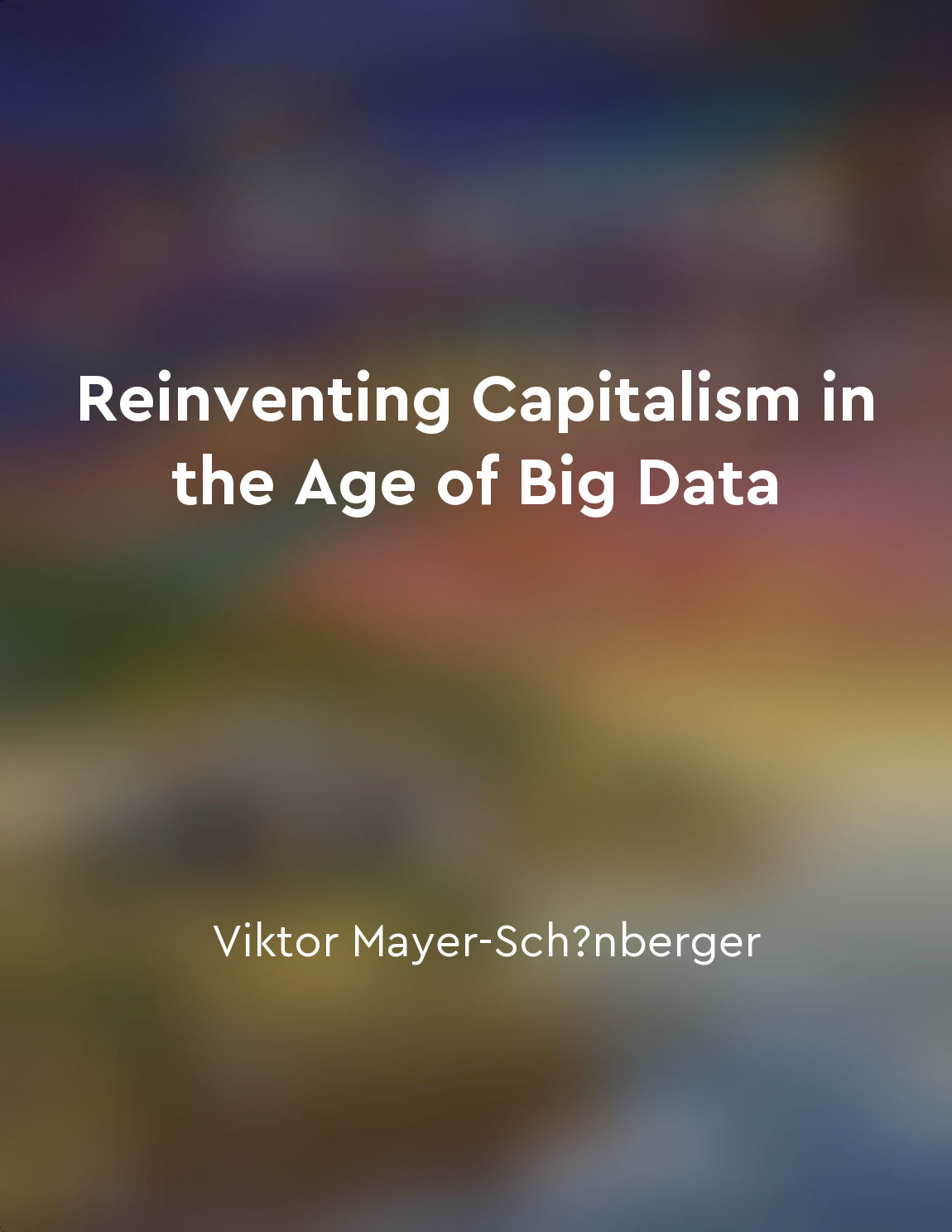We must be aware of the implications of constant monitoring from "summary" of We See It All by Jon Fasman
Constant monitoring has become a pervasive aspect of modern life. From surveillance cameras in public spaces to tracking cookies on the internet, there are countless ways in which our actions are being observed and recorded. While this monitoring can sometimes be beneficial - for example, in preventing crime or improving the user experience online - it also raises important questions about privacy and autonomy. One implication of constant monitoring is the potential for abuse by those in power. As the saying goes, "absolute power corrupts absolutely." When individuals know that their every move is being watched, they may be less likely to speak out against injustice or challenge the status quo. This can have a chilling effect on dissent and ultimately erode the foundations of democracy. Another concern is the erosion of personal privacy. In an age where data is king, our every click, like, and purchase is being recorded and analyzed. This information can be used to manipulate our behavior, target us with advertisements, or even deny us opportunities based on our digital footprint. The loss of privacy can have profound psychological effects, leading to feelings of paranoia, anxiety, and alienation. Furthermore, constant monitoring can lead to a false sense of security. While it may provide the illusion of safety and control, in reality, it can create a panopticon - a prison in which the inmates are aware that they are being watched at all times. This can breed complacency and conformity, as individuals internalize the gaze of the surveillance state and modify their behavior accordingly.- We must grapple with the paradox of constant monitoring: while it may offer certain benefits, it also comes with significant costs. As we navigate this brave new world of surveillance, we must be vigilant in protecting our rights, our autonomy, and our humanity. Only by staying informed and engaged can we hope to strike a balance between security and freedom in an age of constant monitoring.
Similar Posts

People need to be given control over their own data
The idea that people need to be given control over their own data is a fundamental one in the digital age. When individuals lac...

The balance between data use and privacy must be carefully managed
In our digital society, data has become a valuable resource that fuels innovation and economic growth. Companies and government...
We need to fight for our rights
The idea that we must stand up and defend our rights is not a new one. Throughout history, individuals and groups have fought f...

Society must grapple with the implications of constant monitoring
Fasman explores the idea that constant monitoring poses a significant challenge for society. The novel delves into the implicat...
Role of decentralized technologies
Decentralized technologies are a crucial aspect of the emerging digital landscape. These technologies are fundamentally reshapi...

Our personal information is vulnerable to exploitation
In the digital age, our lives are increasingly lived online. We share our thoughts, feelings, and activities on social media, m...
Governments must balance security and freedom
The delicate balance between security and freedom is a fundamental challenge for governments in the modern world. On one hand, ...
Punishment is a form of social conditioning
The use of punishment within society serves as a means of conditioning individuals to conform to established norms and rules. P...

